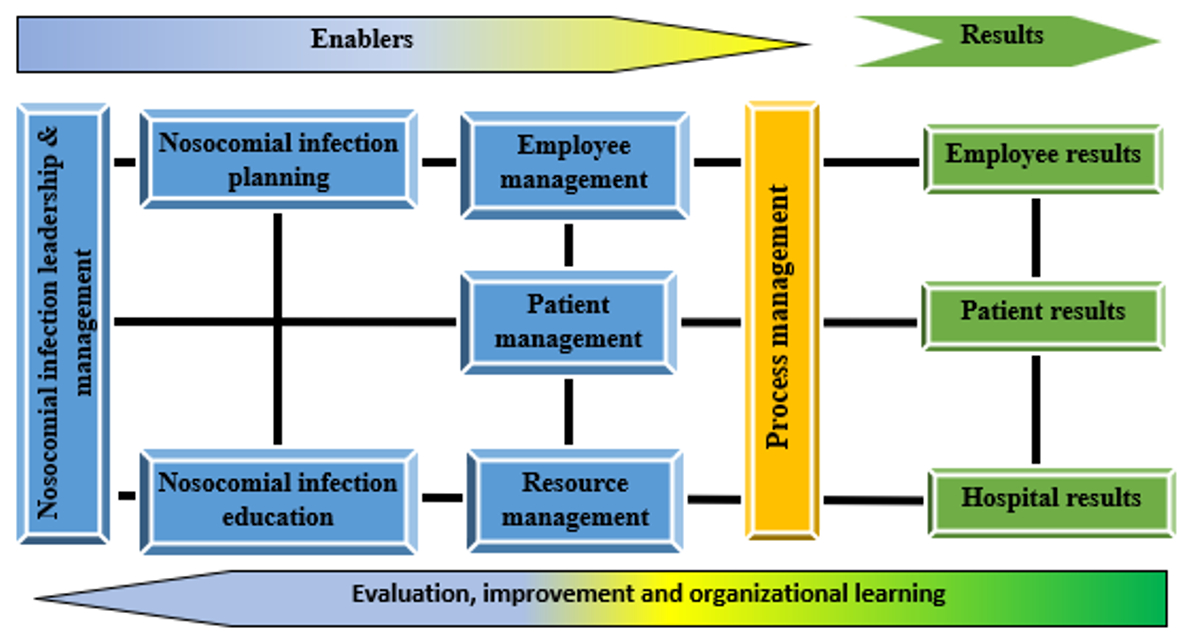Volume 12, Issue 1 (3-2022)
J Health Saf Work 2022, 12(1): 99-122 |
Back to browse issues page
Download citation:
BibTeX | RIS | EndNote | Medlars | ProCite | Reference Manager | RefWorks
Send citation to:



BibTeX | RIS | EndNote | Medlars | ProCite | Reference Manager | RefWorks
Send citation to:
Mosadeghrad A M, Qazanfari F, Keykhani S. Hospital Infection Control accreditation standards: A Comparative Review. J Health Saf Work 2022; 12 (1) :99-122
URL: http://jhsw.tums.ac.ir/article-1-6636-en.html
URL: http://jhsw.tums.ac.ir/article-1-6636-en.html
1- Health Management and Economics Department, School of Public Health, Health information Management Research Centre, Tehran University of Medical Sciences, Tehran, Iran
2- Health Management and Economics Department, School of Public Health, Tehran University of Medical Sciences, Tehran, Iran ,maha5065@yahoo.com
3- Health Management and Economics Department, School of Public Health, Tehran University of Medical Sciences, Tehran, Iran
2- Health Management and Economics Department, School of Public Health, Tehran University of Medical Sciences, Tehran, Iran ,
3- Health Management and Economics Department, School of Public Health, Tehran University of Medical Sciences, Tehran, Iran
Abstract: (2545 Views)
Introduction: Nosocomial infection (NI) is an infection occurring in a patient after 48 hours of hospitalization or up to 72 hours after discharge from the hospital, which was not present or incubating at the time of admission. Hospital accreditation standards have a significant impact on the prevention and control of NI. Nevertheless, Iran’s hospital accreditation standards face challenges. The aim of this study was to compare the accreditation standards of NI prevention and control in Iran and leading countries.
Material and Methods: This research was conducted using the comparative review method in 2020. Hospital infection prevention and control (IPC) standards of Iran Hospital Accreditation Program was compared with those of international accreditation programs in the United States, Canada and Australia. Thematic analysis method was used to analyze the qualitative data.
Results: Iran and the United States had the highest share of nosocomial IPC standards. The Iranian Hospital IPC standards approximately comply with 62.1%, 46.6% and 49.9% of Hospital IPC standards of the United States, Canada and Australia, respectively. A hospital infection management system including constructs of NI leadership and management, NI planning, NI education, employee management, patient management, resource management, process management and outcomes is necessary for IPC. Iran Hospital Accreditation Program places great emphasis on process and resource management and less importance to leadership and management, planning, employee management, patient management and outcomes.
Conclusion: The Iranian Hospital Accreditation Program is progressing. However, its IPC standards need to be reviewed and updated. Using a systems approach including structures, processes and results in the development of hospital accreditation standards, leads to the optimal use of hospital resources and achieving better results.
Material and Methods: This research was conducted using the comparative review method in 2020. Hospital infection prevention and control (IPC) standards of Iran Hospital Accreditation Program was compared with those of international accreditation programs in the United States, Canada and Australia. Thematic analysis method was used to analyze the qualitative data.
Results: Iran and the United States had the highest share of nosocomial IPC standards. The Iranian Hospital IPC standards approximately comply with 62.1%, 46.6% and 49.9% of Hospital IPC standards of the United States, Canada and Australia, respectively. A hospital infection management system including constructs of NI leadership and management, NI planning, NI education, employee management, patient management, resource management, process management and outcomes is necessary for IPC. Iran Hospital Accreditation Program places great emphasis on process and resource management and less importance to leadership and management, planning, employee management, patient management and outcomes.
Conclusion: The Iranian Hospital Accreditation Program is progressing. However, its IPC standards need to be reviewed and updated. Using a systems approach including structures, processes and results in the development of hospital accreditation standards, leads to the optimal use of hospital resources and achieving better results.
Type of Study: Review |
Received: 2022/03/6 | Accepted: 2022/03/30 | Published: 2022/03/30
Received: 2022/03/6 | Accepted: 2022/03/30 | Published: 2022/03/30
Send email to the article author
| Rights and permissions | |
 |
This work is licensed under a Creative Commons Attribution-NonCommercial 4.0 International License. |







